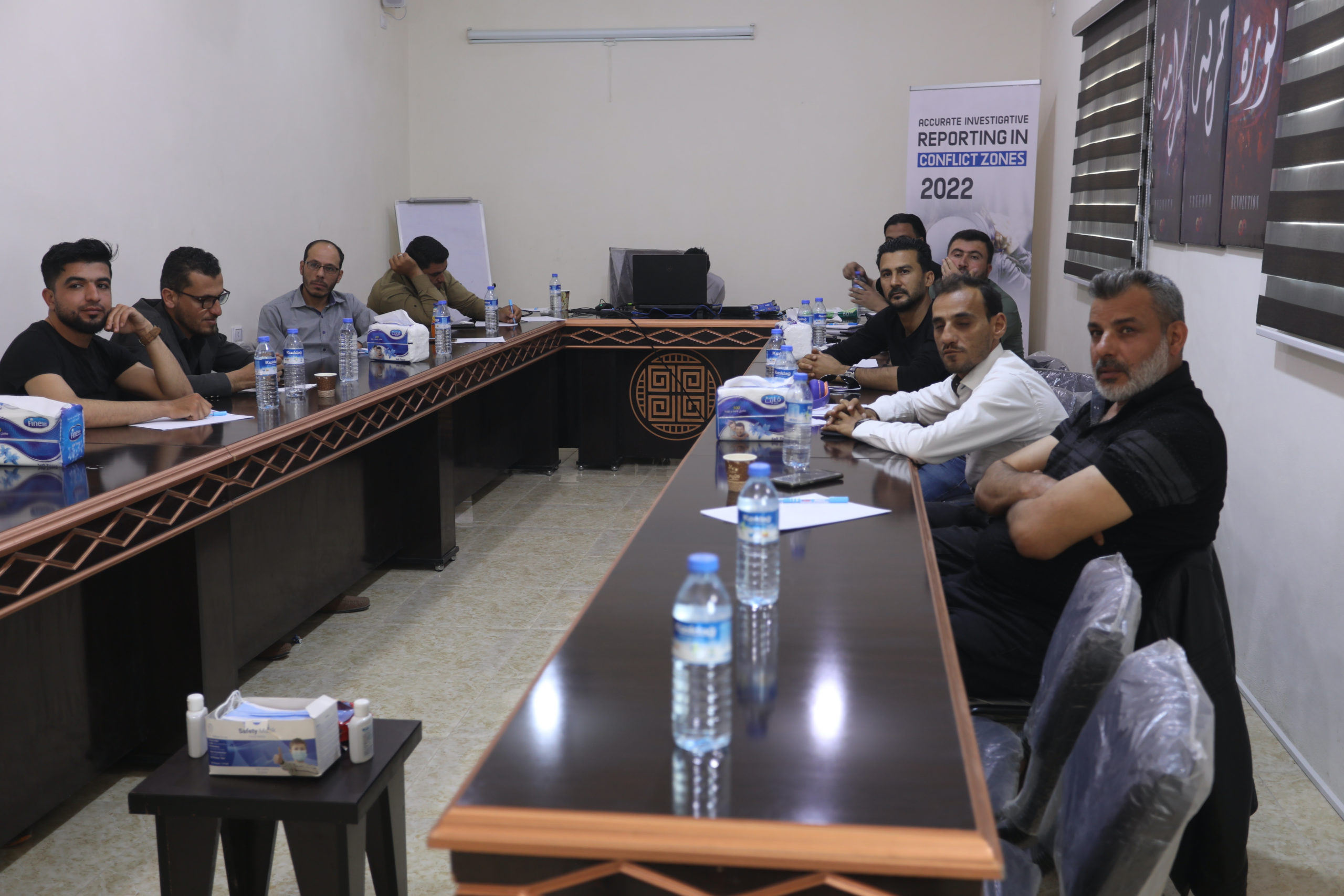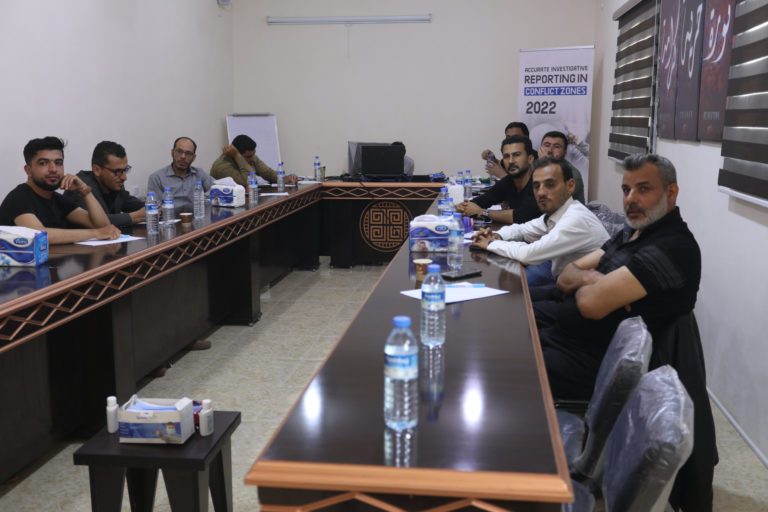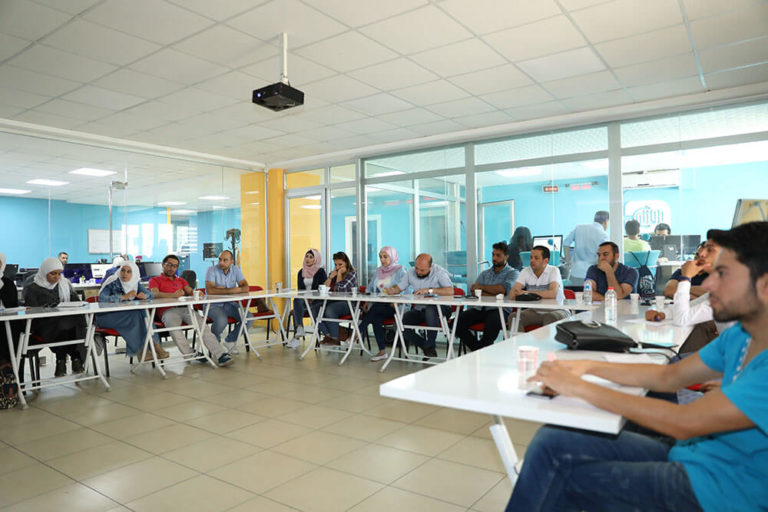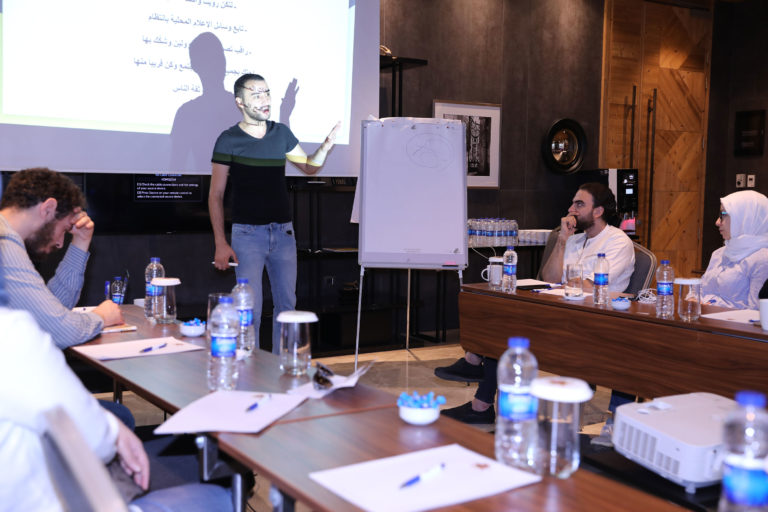Date prepared on: June 15, 2022
Training dates: May 23-27, 2022
Location: Northern Syria
Attendees: 25 journalists
Donor: Media Diversity Institute (MDI)
Co-Organizer Partner: Accuracy Press Institute (API)
Overview:
Sourceable, alongside the Accuracy Press Institute (API), organized a 5-day training in northern Syria from May 23 to May 27, 2022. Funded by the Media Diversity Institute, the training focused on accurate investigative reporting. Training partners included the Dart Center for Journalism and Trauma, TruePic, Columbia University’s Data, Media, and Society Institute, the University of California Berkeley’s Human Rights Center, and the Syrian Investigative Reporting for Accountability Journalism.
Participants breakdown:
The 25 participants included 5 females and 20 males from northern Syria. Some of the journalists in attendance work for the following media outlets: Enab Baladi, Aleppo Today, Hiwar, Knat Jusoor, Syria Today, Iran Wire, Orient, Radio Fresh, Sky News, BBC, AFP and Al Jazeera
What we learned:
- Reliable internet and electricity remain a significant challenge for participants. For example, during the five-day training, the internet and electricity went down multiple times. As a result, the training had to pause and resume until all participants were back online.
- Based on the survey results and overall feedback, participants were very satisfied with the training and look forward to more training workshops like this.
Agenda
| Day 1: Safety & Security | ||
| Welcome & Introductions | Lena Arkawi, Sourceable
Zaid Mastou, API |
|
| Threat Modeling | Susan McGregor, Data Media and Society Institute (Columbia University) | |
| Digital Security & How to Protect Journalists in War and Conflict | Rami Nakhal, TruePic | |
Takeaways:
|
||
| Day 2: Introduction to Investigative Reporting & Dealing with Trauma | ||
| News Writing & Intro to Investigative Reporting | Zaid Mastou, API | |
| Dealing with Vicarious Trauma from Reporting | Bruce Shapiro, Dart Center | |
Takeaways:
|
||
| Day 3: Investigative Reporting and Open Source Methods | ||
| Investigative Reporting | Zaid Mastou, API | |
| Open Source Methods for Human Rights Investigative Reporting and How to Verify OS Content | Brian Nguyen, Human Rights Center (University of California, Berkeley) | |
Takeaways:
|
||
| Day 4: Investigative Reporting, Intellectual Property, and Publication | ||
| News Writing & Intro to Investigative Reporting | Ahmed Hamdo, Syrian Investigative Reporting for Accountability Journalism | |
Takeaways:
|
||
| Day 5: Sourceable | ||
| Investigative reporting | Zaid Mastou, API | |
| Sourceable and How to Use It | Lena Arkawi, Sourceable | |
Takeaways:
|
||
Some quotes from participants
Overall course evaluation:
- “In northern Syria, we do not have access to such a strong and important training workshop. Thank you to the organizers for making this event possible, and providing support to journalists. Thank you for teaching us new ways to do our work and helping us identify new communication channels to submit and publish our work.”
- “Please organize more courses like this, because there is a huge need for it in northern Syria. Thank you to the organizations and especially Professor Zaid Mastou.”
What is the most important part of the training?
- “The most important thing we learned from the training session is about digital verification and security.”
- “Digital security, the mental health of journalists, and investigative journalism.”
- “Methods and tools that help in obtaining information.”
- “Knowing the tools of working in investigative reporting and how to mitigate risks.”
Feedback from the participants
The overall feedback from participants regarding the training workshop was: “excellent” from 10/15 survey respondents and “good” from 5/15 survey respondents.
Media Coverage
Enab Baladi




